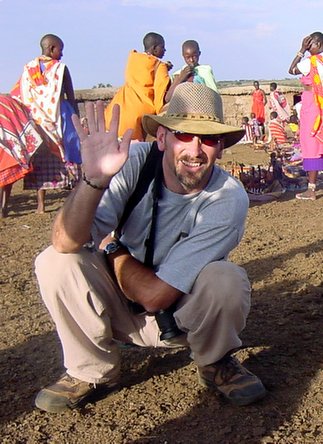Found this Op-Ed in the
NYT this morning . . .
Land of Penny Pinchers
By
NICHOLAS D. KRISTOF
So is the U.S. "stingy" about helping poor countries?
That accusation by a U.N. official, in veiled form, provoked indignation here. After all, we're the most generous people on earth ... aren't we?
No, alas, we're not. And the tsunami illustrates the problem: When grieving victims intrude onto our TV screens, we dig into our pockets and provide the massive, heartwarming response that we're now displaying in Asia; the rest of the time, we're tightwads who turn away as people die in far greater numbers.
The 150,000 or so fatalities from the tsunami are well within the margin of error for estimates of the number of deaths every year from malaria. Probably two million people die annually of malaria, most of them children and most in Africa, or maybe it's three million - we don't even know.
But the bottom line is that this month and every month, more people will die of malaria (165,000 or more) and AIDS (240,000) than died in the tsunamis, and almost as many will die because of diarrhea ( 140,000).
And that's where we're stingy.
Americans give 15 cents per day per person in official development assistance to poor countries. The average American spends four times that on soft drinks daily.
In 2003, the latest year for which figures are available, we increased such assistance by one-fifth, for President Bush has actually been much better about helping poor countries than President Clinton was. But as a share of our economy, our contribution still left us ranked dead last among 22 top donor countries.
We gave 15 cents for every $100 of national income to poor countries. Denmark gave 84 cents, the Netherlands gave 80 cents, Belgium gave 60 cents, France gave 41 cents, and Greece gave 21 cents (that was the lowest share, beside our own).
It is sometimes said that Americans make up for low official aid with private charitable donations. Nope. By OECD calculations, private donations add 6 cents a day to the official U.S. figure - meaning that we still give only 21 cents a day per person.
One reason for American stinginess, I think, is a sense that foreign aid is money down a rathole. True, plenty has been wasted. But there's also growing evidence of what works and is cost-effective - such as health programs and girls' schooling.
One of the most unforgettable people I've met is Nhem Yen, a Cambodian grandmother whose daughter had just died of malaria, leaving two small children. So Nhem Yen was looking after her four children and two grandchildren, and she could afford only one mosquito net to protect them from malarial mosquitoes. Each night, she had to choose which of the six children would sleep under the net.
Do we really think that paying $5 for a mosquito net to keep Nhem Yen's children alive would be money down a rathole?
When I contracted the most lethal form of malaria, in Congo, I was easily cured because I could afford the best medicines. But to save money, African children are given medicines that cost only 5 cents a dose but aren't very effective; the medicine that would actually save their lives is unaffordable, at $1 a dose. Do we really think $1 a dose for medicine to save a child is money down a rathole?
Jeffrey Sachs, the Columbia University economist, estimates that spending $2 billion to $3 billion on malaria might save more than one million lives a year. "This is probably the best bargain on the planet," he said.
The outpouring of U.S. aid, private and public, for tsunami victims is wonderful. But, frankly, the affected nations will get all the money they can absorb for the moment, and Thailand, Indonesia and Sri Lanka are far from the worst off in the world.
"The really big money can be better and more usefully absorbed by developing good health and education programs in the poorest countries," noted Nancy Birdsall, president of the Center for Global Development. "But that's not as visible or heroic."
With America's image tarnished around the world, one of the most effective steps Mr. Bush could take to revive it would be to lead a global effort to confront an ongoing challenge like malaria. That would also give Mr. Bush more credibility by suggesting that the "culture of life" he talks about embraces not just fetuses, but also African children crying from hunger.
The best response to accusations of stinginess is not to be defensive, but to be generous. And the measure of generosity is not what you offer when the spotlight is upon you, but what you do when the spotlight moves on.

